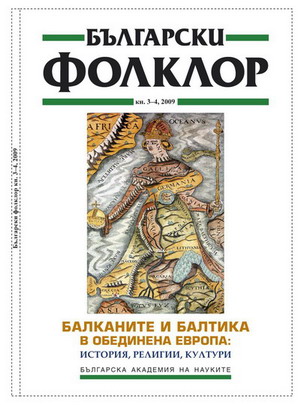Пътуване през границите: съвременни модели на трансгранична трудова миграция на рударите в България
Journey Across Borders: Contemporary Patterns of Trans-Border Labour Migration of the Rudari in Bulgaria
Author(s): Magdalena SlavkovaSubject(s): Anthropology
Published by: Институт за етнология и фолклористика с Етнографски музей при БАН
Summary/Abstract: For nomad communities traveling means more than the actual movement, which implies crossing administrative and state borders. Traveling of relatives together, going from one place to another is not just factual state, but a significant characteristic for the whole community. The movement has very important economic and social functions: by traveling, the communities could practice their traditional occupation and sustain their families. The intensive migration movement from Eastern to Western Europe started at the beginning of 1990s and involved many people, who temporarily or permanently left their homeland, with the only hope to provide for a better life. Rudari are the most active participants in contemporary transnational mobility originating in Bulgaria, and they mainly direct their movements to the Mediterranean countries. The journey to “Europe” has caused a number of dramatic changes in their way of life, due to the adaptation to different socio-economic and multicultural environments. The families are often compelled to live separately in several different states and the flow of information and social relations is set and facilitated through new patterns and by different means. Regardless of the fact that Rudari become a transnational community, they have however preserved their inner-group regional heterogeneity. The new conditions of life and their acquaintance with different cultures reflect on the demonstrated awareness of Rudari, who, under the circumstances of cross-border labor mobility, try to preserve their prestigious group’s identity. The complex structure of Rudari identity gains new dimensions in emigration and shows that these processes are often influenced by factors that are external to the community. The gurbet converts into something more than a factual crossing of borders, namely into a very important community feature. Transnational labor mobility will continue to play a significant role and will reflect on the social organization of the Rudari group. The new way of life and the transnational ‘journey’ to Europe give grounds to many migrants to feel part of the European community.
Journal: Български фолклор
- Issue Year: XXXV/2009
- Issue No: 3-4
- Page Range: 140-145
- Page Count: 6
- Language: Bulgarian
- Content File-PDF

